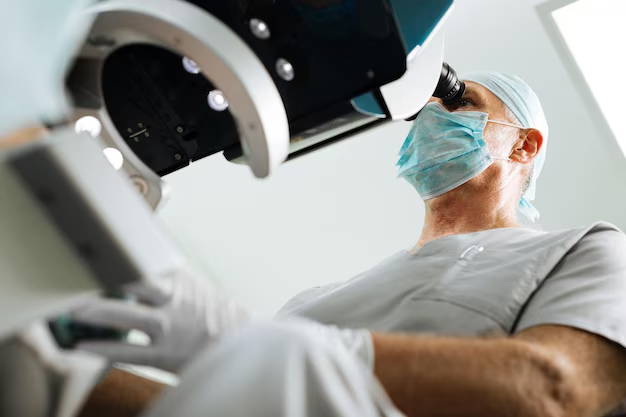Your Guide to Can Cataracts Be Cured
What You Get:
Free Guide
Free, helpful information about Cataract FAQ and related Can Cataracts Be Cured topics.
Helpful Information
Get clear and easy-to-understand details about Can Cataracts Be Cured topics and resources.
Personalized Offers
Answer a few optional questions to receive offers or information related to Cataract FAQ. The survey is optional and not required to access your free guide.
Can Cataracts Be Completely Cured?: A Comprehensive Exploration
Have you ever wondered if cataracts, those cloudy patches that can blur vision, can be cured? This is a common concern, especially as cataracts typically develop and progress with age. Understanding cataracts not only helps alleviate worry but also empowers you to make informed decisions. In this exploration, we’ll delve into everything from understanding how cataracts form to exploring potential treatments and addressing frequently asked questions.
🌟 What Are Cataracts?
Cataracts are a condition characterized by the clouding of the eye's natural lens, which lies behind the iris and the pupil. This cloudiness obstructs light from passing clearly through the lens, causing vision to become blurry or dimmed.
How Do Cataracts Form?
Cataracts can develop due to several reasons:
- Aging: The most common cause is aging. Over time, proteins in the lens degrade and clump together, leading to opacity.
- Injury or Surgery: Previous eye surgeries or traumas can trigger cataract formation.
- Health Conditions: Diseases such as diabetes increase the risk.
- Genetic Factors: Family history might play a role in the likelihood of developing cataracts.
Important Note: Cataracts do not spread from one eye to the other, though they usually develop in both eyes at different rates.
🌿 Can Cataracts Be Prevented or Slowed Down?
While no guaranteed method exists to prevent cataracts entirely, some strategies may help delay their progression:
- Regular Eye Exams: Early detection is key to managing cataracts effectively.
- Healthy Lifestyle: Eating a balanced diet rich in vitamins and antioxidants can support eye health.
- UV Protection: Wearing sunglasses that block UV rays may protect your eyes from sunlight-related damage.
Lifestyle Changes to Consider
- Avoid Smoking: Tobacco use can increase the risk.
- Limit Alcohol Consumption: Excessive drinking may contribute to cataract formation.
- Manage Health Conditions: Keeping conditions like diabetes under control can reduce risk.
🧬 Treatment Options for Cataracts
Can Cataracts Be Cured?
Cataracts, currently, cannot be reversed naturally or with medication. However, they can be effectively treated through surgical interventions.
Cataract Surgery: The Only Cure
Cataract surgery is the most successful treatment, where the cloudy lens is removed and replaced with an artificial intraocular lens (IOL). This procedure is highly effective and generally safe.
Types of Cataract Surgery
- Phacoemulsification: The most common method, using ultrasound waves to break up the lens before removal.
- Extracapsular Surgery: Involves removing the cloudy part of the lens in one piece.
Key Benefits of Surgery:
- Restored clear vision
- Reduced glare and improved color perception
- It often requires minimal recovery time
🤔 Common Questions About Cataract Surgery
When Should You Consider Surgery?
- When cataracts begin to impact daily activities such as reading, driving, or recognizing faces.
- If cataracts interfere with necessary medical treatment for other eye issues.
What Are the Risks?
Like any surgery, cataract surgery carries some risks, though serious complications are rare. Common risks can include infection, inflammation, and changes in eye pressure.
Preparation and Recovery
- Before Surgery: Discuss with your ophthalmologist, understand the procedure, and prepare questions.
- After Surgery: Avoid strenuous activities or heavy lifting. Follow your doctor's aftercare instructions meticulously.
🏥 Other Considerations
Alternatives to Surgery
Currently, surgery is the only method to remove cataracts. However, vision aids like glasses with anti-glare properties can help manage symptoms temporarily.
Technological Advances
Emerging technologies continue to improve cataract treatment outcomes. Innovations in lens material and design, as well as more refined surgical techniques, offer promising enhancements.
🔍 The Role of Technology in Cataract Treatment
Precision and Laser-Assisted Surgery
In some cases, laser-assisted cataract surgery may enhance precision, leading to improved visual outcomes and reduced recovery times.
Custom Intraocular Lenses
New and improved IOLs offer not just clear vision like the natural lens but may also correct pre-existing refractive errors such as astigmatism.
📋 Summary: Key Takeaways
Here's a quick guide to what we’ve covered:
- Cataracts are a common age-related condition that cloud the lens of the eye.
- They progress over time and cannot be reversed naturally.
- A healthy lifestyle can help delay the onset, but surgery is the only cure once cataracts impact daily life.
- Consult regularly with an eye professional to monitor and manage eye health.
- Cataract surgery involves removing and replacing the lens and is safe, effective, and widely practiced.
| 📝 Tips | 💡 Explanation |
|---|---|
| Routine Eye Exams 👀 | Early detection can catch cataracts before they impair vision significantly. |
| UV Protection 🌞 | Sunglasses can prevent UV-induced lens damage. |
| Healthy Diet 🥦 | Consuming antioxidants may slow cataract progression. |
| Smoking Habits 🚬 | Quitting smoking reduces cataract risk. |
| Surgical Consultation 🏥 | Discuss options with a professional if cataracts impact your life. |
Ultimately, while cataracts cannot be reversed naturally, advancements in surgical techniques offer an excellent prognosis for those affected. Staying informed and proactive about eye health can lead to improved vision and quality of life even as we age.
What You Get:
Free Cataract FAQ Guide
Free, helpful information about Can Cataracts Be Cured and related resources.

Helpful Information
Get clear, easy-to-understand details about Can Cataracts Be Cured topics.

Optional Personalized Offers
Answer a few optional questions to see offers or information related to Cataract FAQ. Participation is not required to get your free guide.


